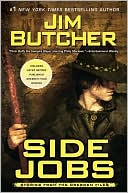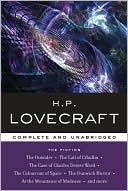Stick Out Your Tongue: Stories
When Stick Out Your Tongue was published in Chinese in 1997, a blanket ban was placed on Ma Jian's future work. With its publication in English, readers get a rare glimpse of Tibet through Chinese eyes. In this profound work of fiction, a Chinese writer whose marriage has fallen apart travels to Tibet. As he wanders through the countryside, he witnesses the sky burial of a Tibetan woman who died during childbirth, shares a tent with a nomad who is walking to a sacred mountain to seek...
Search in google:
Tibet is a land lost in the glare of politics and romanticism, and Ma Jian set out to discover its truths. Stick Out Your Tongue is a revelation: a startlingly vivid portrait of Tibet, both enchanting and horrifying, beautiful and violent, seductive and perverse.In this profound work of fiction, a Chinese writer whose marriage has fallen apart travels to Tibet. As he wanders through the countryside, he witnesses the sky burial of a Tibetan woman who died during childbirth, shares a tent with a nomad who is walking to a sacred mountain to seek forgiveness for sleeping with his daughter, meets a silversmith who has hung the wind-dried corpse of his lover on the wall of his cave, and hears the story of a young female incarnate lama who died during a Buddhist initiation rite. In the thin air of the high plateau, the divide between dream and reality becomes confused.When this book was published in Chinese in 1997, the government accused Ma Jian of "harming the fraternal solidarity of the national minorities," and a blanket ban was placed on his future work. With its publication in English, including a new afterword by the author that sets the book in its personal and political context, readers get a rare glimpse of Tibet through Chinese eyes—and a window on the imagination of one of China's foremost writers.The Washington POst - Michael DirdaThese powerful pages, so convincing in what appears an unflinching naturalism, are hard to shake from one's memory and remain, if nothing else, testimony to the storytelling artistry of Ma Jian. Still, it's little wonder that the pieces were once suppressed and that their author now lives in London.
Stick Out Your Tongue\ Stories \ \ By Jian, Ma \ Farrar, Straus and Giroux\ Copyright © 2006 Jian, Ma\ All right reserved.\ ISBN: 0374269882 \ \ \ Excerpted from Stick Out Your Tongue by Ma Jian. Copyright © 2006 by Ma Jian. Published in May 2006 by Farrar, Straus and Giroux, LLC. All rights reserved.\ \ THE WOMAN AND THE BLUE SKY\ \ Our bus ground to the top of the five-thousand-metre Kambala Pass. Behind us, a few army trucks were still struggling up the foothills. As the last clouds tore from the rocks and prayer stones on the summit and slipped down the gullies, Yamdrok Lake came into view. When the surface of the lake mirrored the blue sky and plunged the distant snow peaks head-first into the water, I was filled with a sudden longing to take someone in my arms. This was the mountain road to Central Tibet.\ \ During the month that I'd stayed in Lhasa, I had visited many ancient monasteries and shrines, but it was to the Jokhang Temple that I'd returned most frequently. The Jokhang is Tibetan Buddhism's most venerated site. Pilgrims from every corner of Tibet circle its walls in a continual stream, spinning prayer wheels, praying for an end to their suffering in this life and a prosperous rebirth in the next. Crowds prostrate themselves before the entrance, resembling professional athletes as they hurl themselves to the ground, stand up with hands clasped in prayer, then throwthemselves down again. These displays of religious fervour appeal to foreign travellers, but sky burials arouse an even greater interest. While I was staying in Lhasa, I trekked to the burial site several times, camera in hand. But I never managed to see a burial: it would either be finished by the time I'd arrived, or relatives of the deceased would spot me from afar and tell me to stay away. Sometimes they even threw stones at me. I always ended up traipsing back to Lhasa in a bad mood.\ \ I had been told that when a Tibetan dies, the relatives keep the body at home for three days, then carry it to the burial site, making sure not to look behind them as they walk. When they reach the village gates or a crossroads, they smash an earthenware jar onto the ground to ensure that the dead person's soul will never return. At the funeral site, the burial master lights a fire of fragrant juniper branches. Wealthy families employ a lama to recite from the scriptures and relate to the guardians of the Buddha Realm the merits and achievements of the deceased. Depending on the level of these achievements, the deceased will either return to the world of men, or remain in the Buddha Realm for eternity. The burial master hacks all the flesh from the corpse and slices it into small pieces. He grinds the bones into a fine powder and adds some water to form a paste. (If the bones are young and soft, he will thicken it with ground barley.) He then feeds this paste, together with the flesh, to the surrounding hawks and vultures. If the deceased was a Buddhist, a holy swastika will be carved on the corpse's back. When everything has been eaten, the master presents the scalp to the relatives, and the burial is considered to be complete. After that, the only way the relatives can communicate with the deceased is to go to the temple and pray.\ \ I was travelling to the remote countryside of Central Tibet. When the bus reached the foot of the mountain and hurtled along the shores of Yamdrok Lake, I began to feel dizzy. I opened the window. The lake was calm; there wasn't a speck of dust in the breeze. The bus, however, was crammed to the brim, and the stench of dank sheepskin that wafted from the back made it hard for me to breathe. When I could take it no longer, I told the driver to stop, and jumped out. \ \ Continues... \ \ \ \ Excerpted from Stick Out Your Tongue by Jian, Ma Copyright © 2006 by Jian, Ma. Excerpted by permission.\ All rights reserved. No part of this excerpt may be reproduced or reprinted without permission in writing from the publisher.\ Excerpts are provided by Dial-A-Book Inc. solely for the personal use of visitors to this web site. \ \
The woman and the blue sky1The smile of Lake Drolmula20The eight-fanged roach35The golden crown49The final initiation63
\ Alan Cheuse"The last story, 'The Final Initiation,' tells of a female lama incarnate whose death during an intense Buddhist initiation rite yields a ghastly but powerful souvenir for the narrator of all these stories, the stand-in for the gifted Ma Jian. The people he transfigures in his pages, the images of the high world of Tibet where the living and the dead seem to mingle with beauty and unease, the awe his language instills in us for this place of worship and sacrifice-all this becomes a striking souvenir of our own journey through these inspired pages."\ —The Chicago Tribune\ \ \ \ \ Michael Dirda"These powerful pages, so convincing in what appears an unflinching naturalism, are hard to shake from one's memory and remain, if nothing else, testimony to the storytelling artistry of Ma Jian."\ —The Washington Post\ \ \ Susan Salter Reynolds"Perhaps it is the altitude, or the clear, pure air of Tibet, that makes the details (colors, landscape) prickle even on the page: 'When the surface of the lake mirrored the blue sky and plunged the distant snow peaks head-first into the water, I was filled with a sudden longing to take someone in my arms.'"\ —the Los Angeles Times\ \ \ \ \ Elle Magazine"A succinct, haunting set of stories portraying a beautiful and brutal feudal Tibet under cultural and political assault by China . . ."\ \ \ \ \ Michael DirdaThese powerful pages, so convincing in what appears an unflinching naturalism, are hard to shake from one's memory and remain, if nothing else, testimony to the storytelling artistry of Ma Jian. Still, it's little wonder that the pieces were once suppressed and that their author now lives in London.\ — The Washington POst\ \ \ \ \ Publishers WeeklyMa's five evocative stories concern a young Chinese journalist's travels to the wild plateaus of occupied Tibet in the late 1980s. In the first story, "The Woman and the Blue Sky," the spiritually curious journalist, whose marriage has collapsed, hopes to witness a sky burial, in which a corpse is hacked up and fed to vultures; he meets a Sichuan soldier who invites him to the imminent burial of a 17-year-old pregnant woman, the soldier's lover as well as the wife of two local brothers. Incest and sexual violence figure in some of the stories, such as "The Eight-Fanged Roach," in which the journalist, seeking shelter in a tent at the edge of the Changtang Plateau, hears the awful confession of a nomad obsessed with the daughter he has sired by his mother and drunkenly raped. "The Final Initiation" is the account of a chosen Living Buddha, a 15-year-old girl whose yogic skills desert her after the monastery's sanctioned ritual rape and who dies during her last ceremony-immersion for three days in an icy river. Ma (The Noodle Maker) has a keen sense for both the feral and the deeply spiritual in his characters. The book was published in China in 1997; all of Ma's subsequent work has been banned there. (May) Copyright 2006 Reed Business Information.\ \ \ \ \ Library JournalWritten nearly 20 years ago, this latest offering from Ma Jian (Red Dust; Noodle Maker) to be translated into English consists of five loosely connected stories related by an unnamed Chinese narrator who is traveling in Tibet. The opening piece, "Woman and the Blue Sky," describes the narrator's search to photograph a traditional Tibetan sky burial, in which the body of the deceased is offered up to vultures. In a stroke of luck, he encounters a soldier who invites him to witness the ceremonial burial of his lover, Myima. Tragically, Myima was sold off at the age of six, sexually abused by her adoptive father, married to a pair of brothers, and died as a result of hemorrhaging during childbirth. The stories of tragedy and abuse continue in "Eight-Fanged Roach," where an old man tells of his incestuous relationship with his mother, resulting in the birth of his daughter, Metok. Though he searches for absolution for his sins, he sleeps with his daughter just prior to her running off with a local trader, and she descends into madness. In an afterword, the author notes that his work is controversial among both Tibetans and Chinese. Given their dark and explicitly disturbing nature, these stories will not be appreciated by all readers. But those who have read Xinran's Sky Burial will recognize the irony of hardship placed upon the human spirit set against the striking beauty offered by the Tibetan landscape. Academic libraries, larger public libraries, and those with collections of Asian fiction may want to add this title.-Shirley N. Quan, Orange Cty. P.L., Santa Ana, CA Copyright 2006 Reed Business Information.\ \ \ \ \ Kirkus ReviewsA thinly fictionalized account of the Chinese dissident's travels in Tibet, first published in the journal People's Literature in 1987. In 1985, memoirist and novelist Ma Jian (The Noodle Maker, 2005) headed for Tibet, a land and culture he had long romanticized. He found a country in ruins, "a land whose spiritual heart had been ripped out" after years of Chinese domination. Upon his return to Beijing, Ma Jian wrote the five stories collected here, and sent them off for publication without considering the repercussions. In short order, the print run of the journal was confiscated, the stories were banned and Ma Jian was forced into exile. The stories (and the author's castigations) aren't easy to read: In "The Eight-Fanged Roach," for instance, the narrator encounters a nomad on a pilgrimage to wash away his sins. (The old man committed incest with not only his mother, but also his daughter, who lost her mind as a result.) In another story, 15-year-old Sangsang Tashi, designated the reincarnation of a Living Buddha, undergoes her final initiation-standing for three days in a frozen river. The young girl is doomed, however, when the violence of a preceding ceremony shatters her concentration, and the yogic skills that had taken her years to acquire are lost in an instant. Unable to increase her body temperature, Sangsang succumbs to the frozen waters. In "The Woman and the Blue Sky," the narrator manipulates a young Chinese soldier into letting him witness a Tibetan sky burial. As the corpse, a young pregnant woman, is dismembered, her flesh given to the hawks and vultures, the soldier reveals that the young woman was his lover. The bleak settings and spare language work well together,thanks to translator Drew. Powerful, disturbing and complex.\ \








